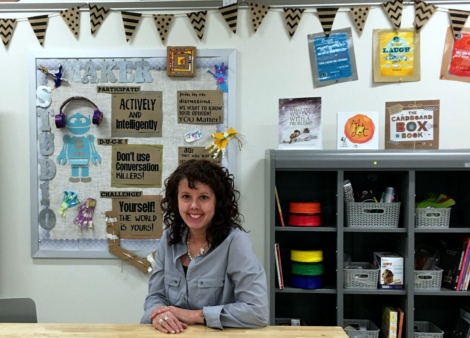Guest Blogger: Inquiring Minds Want to BrainPOP!
Posted by allisyn on
 Mike Jackson is a fourth grade teacher in Bellevue, WA. We met at the NECC conference this year, when Mike helped us out in our booth, sharing his experiences with BrainPOP with other educators. He’s currently working on his National Board Certification, and shares his experiences using BrainPOP below!
Mike Jackson is a fourth grade teacher in Bellevue, WA. We met at the NECC conference this year, when Mike helped us out in our booth, sharing his experiences with BrainPOP with other educators. He’s currently working on his National Board Certification, and shares his experiences using BrainPOP below!
I have been using BrainPOP since its debut in 1999, when I was teaching at an American International School in Hong Kong. Being so far from the US, we were constantly looking for quality resources to integrate into our curriculum to ensure the students attending our school, while their families were stationed overseas, were getting an “American Style” education. When we discovered BrainPOP it quickly became a favorite resource to enrich our teaching.
Now that I am back home in Washington State, I am doing all I can to turn other teachers on to this valuable resource.
My two favorite aspects of BrainPOP are its ability to allow children to explore their curiosity, and my ability to differentiate my curriculum to all levels of understanding in any given lesson.
Inquiry is a focus of my curriculum and students are encouraged to have daily “C.O.W.s” (Connections, Observations or Wonderings). With BrainPOP, the answer to the inevitable September question: “Do we get to learn about _______?” is always “Yes!”. We encourage the natural curiosity of children by allowing them to work on Inquiry Learning Projects focused on their passions and interests. BrainPOP is always a starting point and, many times an ending point as well. The videos often answer the child’s questions without further research or motivate them to dive more deeply into their topic. BrainPOP allows inquiry to flourish as kids explore topics they are interested in with very little planning on my part.
Last year I taught a science block to three classes of gifted fourth graders. While I used the site often to reinforce or review concepts students are struggling with, I found it particularly helpful in differentiating for my more inquisitive scientists. When we were studying mixtures and solutions in chemistry, a student asked about the periodic table. After sending him to BrainPOP, he presented what he’d learned to the class and we ended up having each child “adopt” an element, creating our own periodic table in the lab.
Being able to point students to a resource I trust as much as BrainPOP makes my job much easier and the students learning experience much more personal and rich.
Got a story about using BrainPOP that you’d like to share? Please post comments below!














